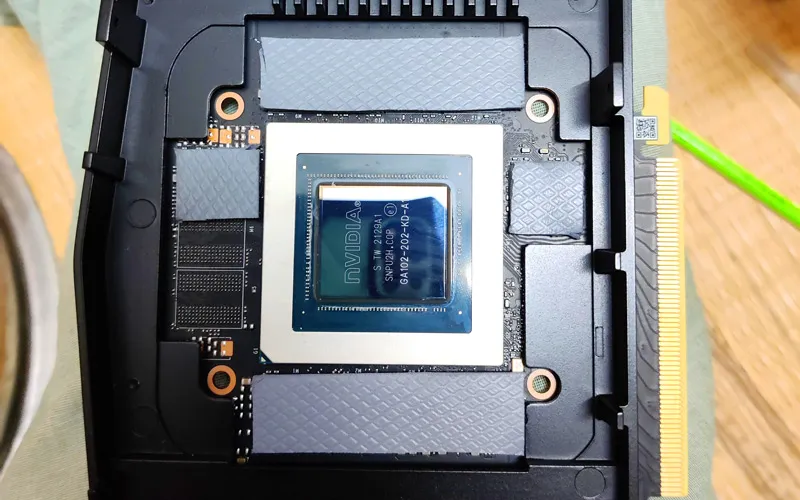How to Choose the Right GPU Thermal Pad?
- Posted on:2023-01-05 11:09:00
- Source:AOK Thermal Pad Manufacturer FAQs
Thermal pad are high-performance gap-filling thermally conductive materials, mainly used for the transfer interface between electronic equipment and heat sinks or product shells. They have good viscosity, flexibility, good compression performance, and excellent thermal conductivity. The air between the heat sink and the heat sink is exhausted to achieve sufficient contact, and the heat is conducted from the separated device or the entire PCB to the metal shell or the diffusion plate, thereby improving the service efficiency and life of the heat-generating electronic components.
Thermal pad are highly compressible, soft and elastic, suitable for low pressure applications. It has a wide range of applications, involving chipsets, IC controllers, communication hardware, automotive control components, consumer electronics, smart home appliances and other fields.
1. Base Material
There are two kinds of polymer materials for the base material of common thermal pads: silicone thermal pads and silicone free thermal pads. The most widely used is the silicone thermal pads. Silicone thermal pads inherit the good temperature resistance (-50°C ~ 200°C) and chemical corrosion resistance of silicone. However, small molecules of silicone oil will be released during long-term use. In some occasions, such as optical equipment, high-sensitivity the use of high-end electronic and electrical industries such as probes and high-definition cameras may be restricted. Silicone free thermal pads (phase change materials) solve the problem of silicone thermal pads releasing small molecules of silicone oil, avoid atomization of laser probes, and will not affect components, thereby ensuring the stability of precision electronic products.
2. Thermal Conductivity
The choice of thermal conductivity needs to be determined in combination with the application environment and requirements.
The heat generation of electronic components. The higher the power, the greater the heat generation, and the greater the heat that needs to be dissipated, so the higher the thermal conductivity of the thermal pads is required.
Design gap thickness, reduced temperature value and heat transfer area. Estimate the area thermal resistance of electronic components according to the fourier equation. According to the thickness of thermal pads with different thermal conductivity, the thermal resistance curve can determine the thermal conductivity of the required product.
3. Structure
There are three common structural types of thermal pads: conventional thermal pads, fiberglass thermal pads, silicone cloth pads. Generally speaking, adding reinforcing materials can improve the physical strength of the thermal pads, but it will inevitably sacrifice part of the thermal conductivity. If the specifications are relatively large, thicker products will have little impact, but it will have a certain impact on products with a thickness of less than 1mm. Conventional thermal pads without reinforcing materials are prone to elongation, and even rupture in severe cases, while thermal pads with reinforced materials have high strength and are not prone to dimensional changes. The reinforced thermal pads on the surface of the silicone cloth has puncture resistance and better electrical insulation.
4.Thickness
The thickness of the GPU thermal pads is generally selected according to the design gap width of electronic components, and it is generally recommended to compress the thickness by 20% ~ 50% to be close to the gap thickness. For example, if the thickness of the gap is 1.5mm, a 2.0mm product can be recommended, because the 2.0mm thermal pads is compressed by 25% to be the same as the thickness of the gap. This thickness can ensure that the gap is filled without causing excessive stress.
If you would like to learn more about AOK performance thermal materials, please visit our website at www.aok-technologies.com.


